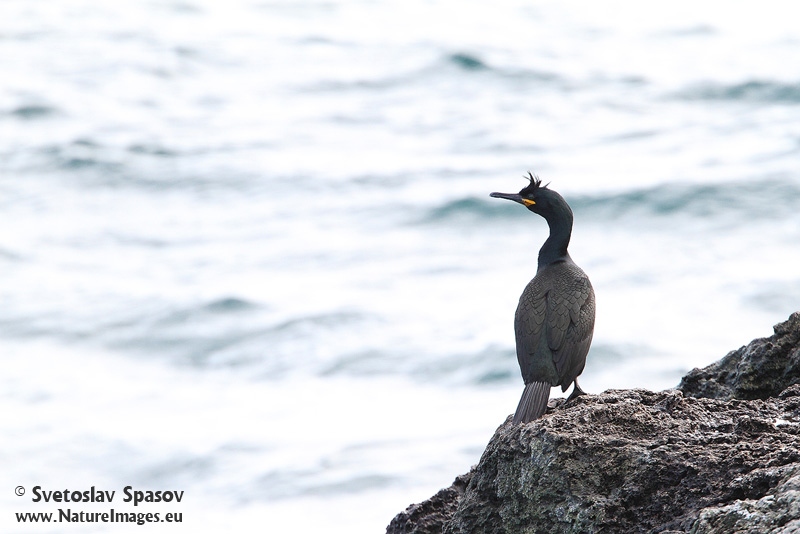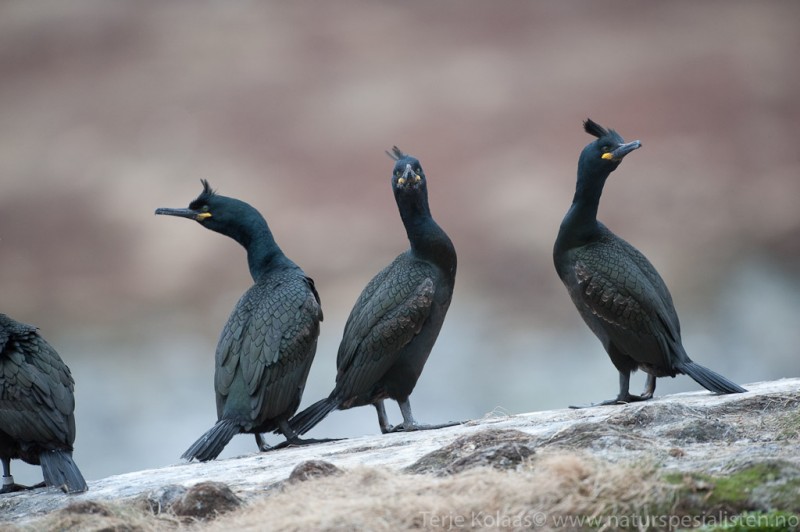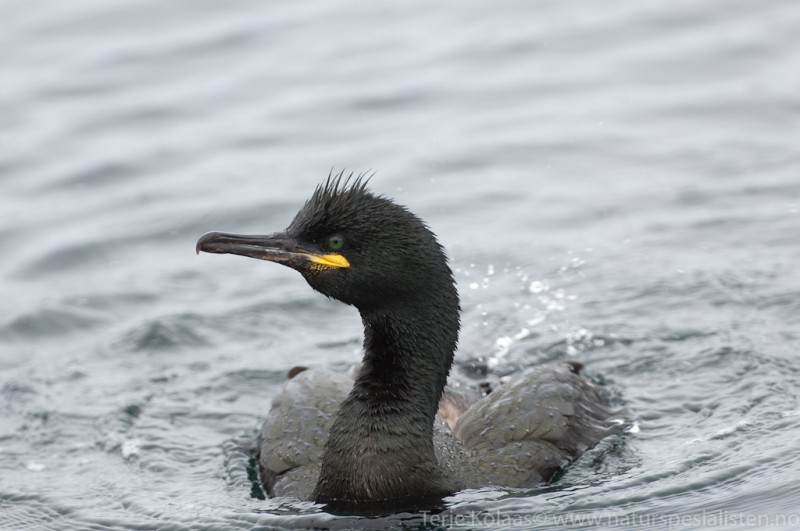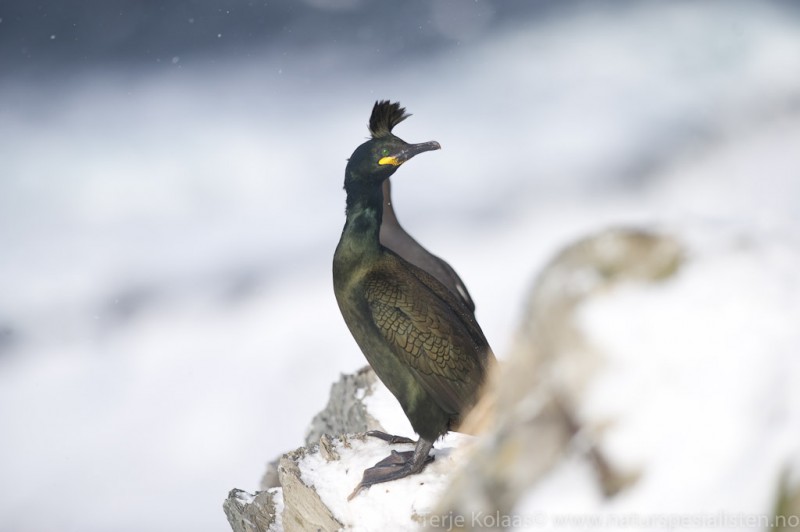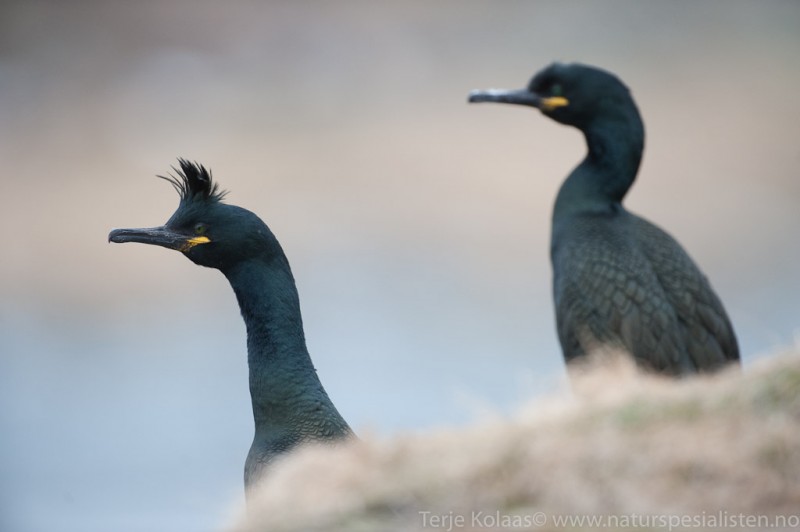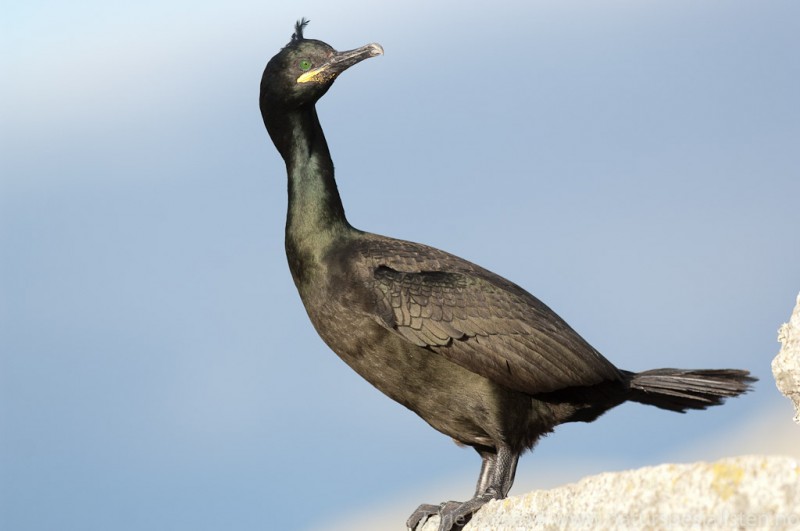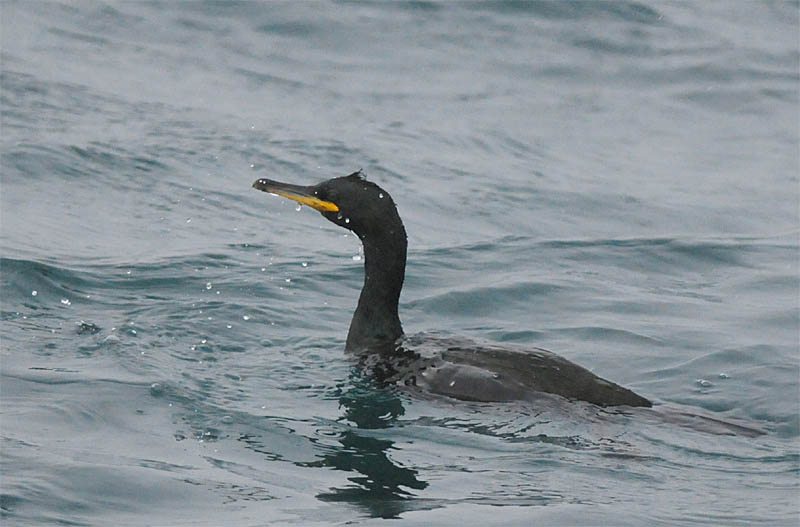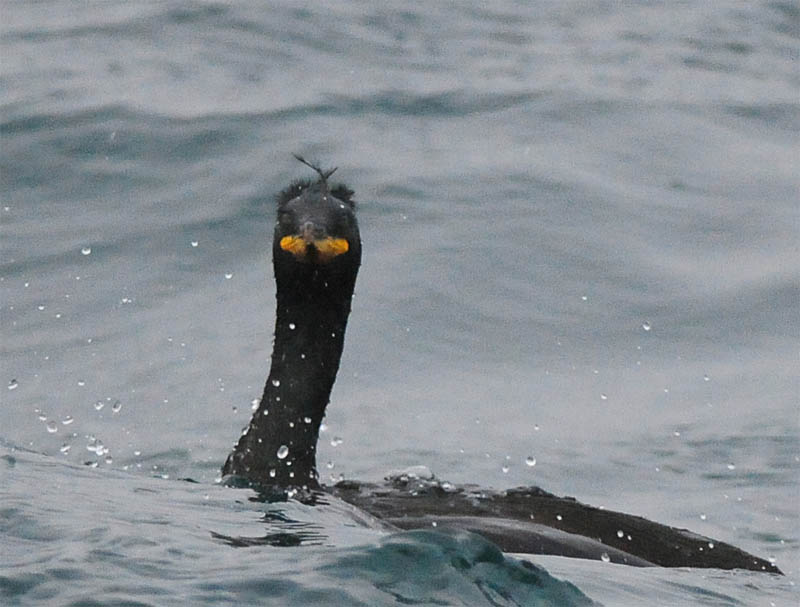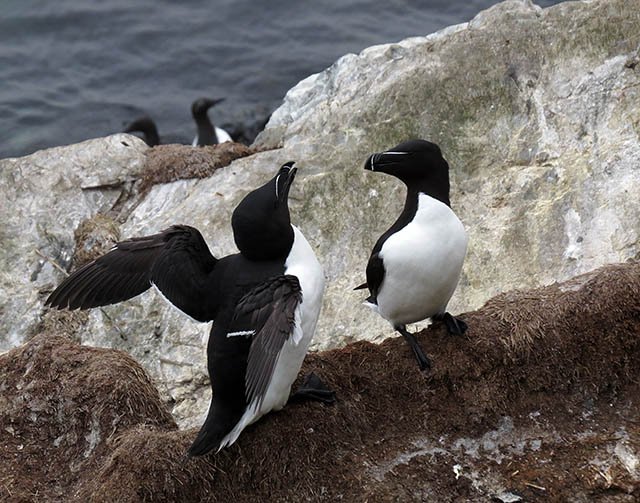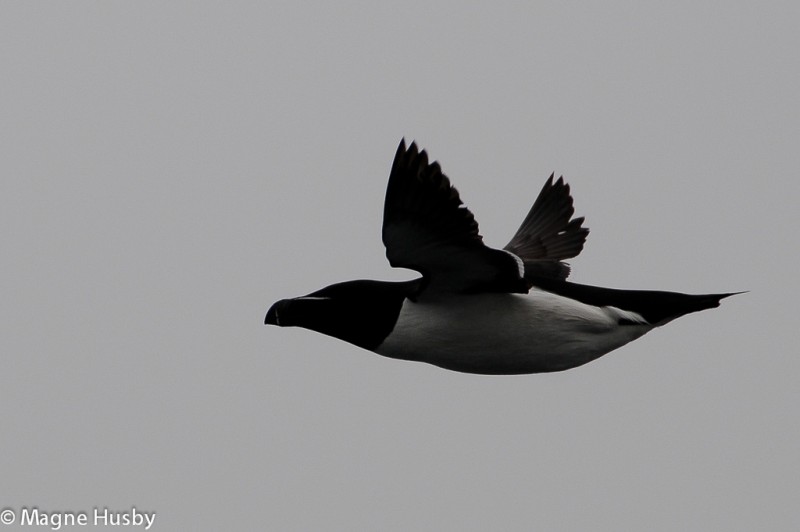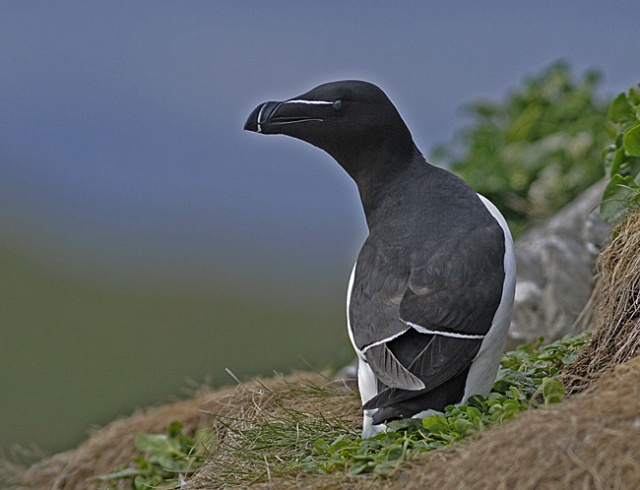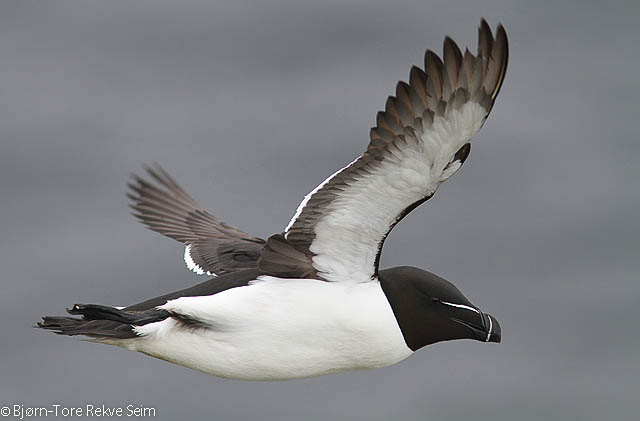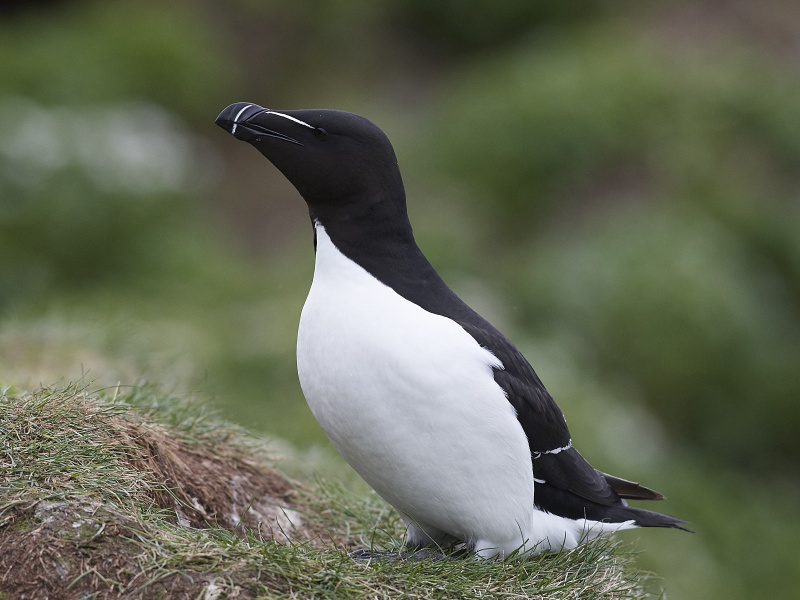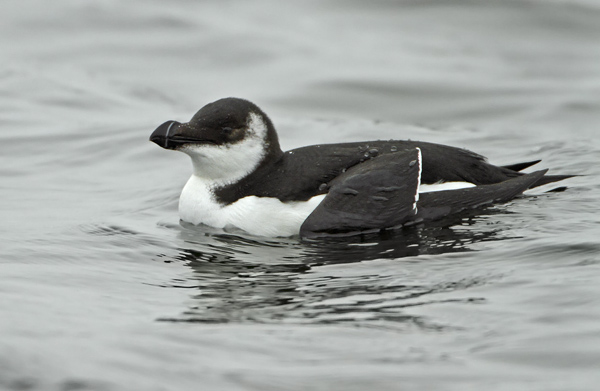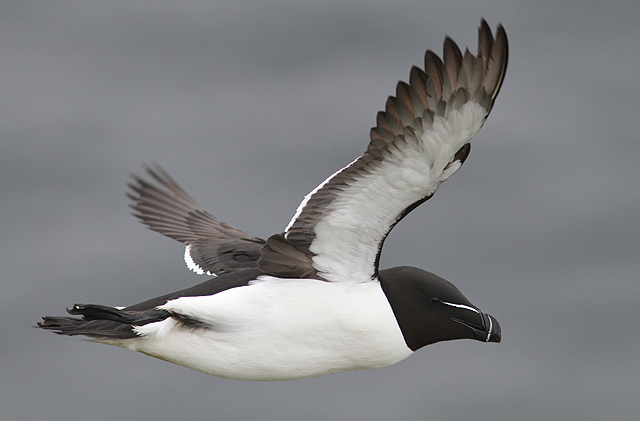Shag (Gulosus aristotelis)
Razorbill (Alca torda)
Easily distinguished from Cormorant in breeding plumage, but at other times easily confused with congeners. Smaller than Cormorant, with a more slender neck and rounded head. Bill slender and straight. Steep forehead with peaked front crown, differs from the wedge shaped head of Cormorant. Bill often with yellow tinge (never in Cormorant). Flies with quicker wing-beats and straight neck (Cormorant with bulge). Often dives with a high jump. Juveniles with darker underparts than Cormorant, and often an obvious brownish tinge. Rare in brackish water.
Sound:Very deep and harsh voice heard at breeding ground. Deep grunts alternated, or ended with clicking sounds.
Social interaction:
Distribution:
Wikipedia: map (se also Xeno-canto below)
Ecology:Birdlife ecology
Links:
Observation.org Latest observations
Image search Flickr NB! May give other species
CCSounds:www.xeno-canto.org,Jens Kirkeby,http://creativecommons.org/licenses/by-nc-sa/4.0/
At a distance quite similar to Guillemot. Bill deep, rectangular and with white markings. Flanks unstreaked and armpits white. Tail longer than in Guillemot, with legs not protruding behind tail in flight. Tail often held clear of the surface when swimming. Cheeks white in winter, with broad, short and black eye stripe. Neck collar short and wide. Upperparts blacker, and underparts whiter than Guillemot. Heavy neck, head and bill, in combination with the long tail, gives it a front heavy, and different profile from Guillemot, whether perched, swimming or flying. Top of head in line with tip of uptilted bill when swimming.
Sound:Very coarse and deep voice. Grunting or snore-like, with little phrasing. Mostly heard at breeding ground, but also sometimes at sea.
Contact call:
Distribution:
Wikipedia: map (se also Xeno-canto below)
Ecology:Birdlife ecology
Links:
Observation.org Latest observations
Image search Flickr NB! May give other species
CCSounds:Recorded by Simon Elliott,http://www.xeno-canto.org ,CC license

 English
English Albanian
Albanian
 Armenian
Armenian
 Bulgarian
Bulgarian
 Catalan
Catalan
 Croatian
Croatian
 Czech
Czech
 Danish
Danish
 Dutch
Dutch
 Finnish
Finnish
 French
French
 Georgian
Georgian
 German
German
 Greek
Greek
 Hungarian
Hungarian
 Italian
Italian
 Latvian
Latvian
 Lithuanian
Lithuanian
 Macedonian
Macedonian
 Norwegian
Norwegian
 Polish
Polish
 Portuguese
Portuguese
 Romanian
Romanian
 Russian
Russian
 Sami : Lule sami
Sami : Lule sami
 Sami : North sami
Sami : North sami
 Sami : South sami
Sami : South sami
 Scientific names
Scientific names
 Serbian
Serbian
 Spanish
Spanish
 Swedish
Swedish
 Ukrainian
Ukrainian

